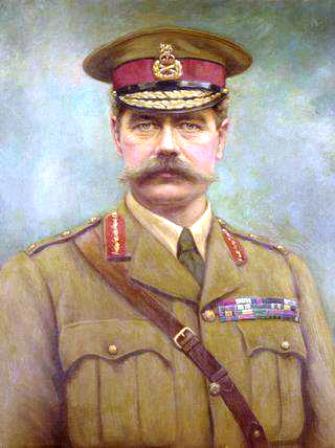12 October 1915
General Sir Ian Hamilton, Headquarters, Mediterranean Expeditionary Force - The 12 October was marked by a flurry of cables between Hamilton and Kitchener as Hamilton fought to avoid any more talk of evacuation.
 Early in the morning got off my answer to K.'s evacuation cable. The elements, the enemy and ourselves are the three factors of the problem. Were I to measure my problem by the night flitting of the Irish and French Divisions (who lost neither man nor beast in the process), I could guarantee that we would shoot the moon with the balance of the force smoothly, swiftly and silently. That is to say, supposing the Turks and the weather remain constant. But these are two most inconstant things: no one can tell how a Turk will behave under any given conditions; the Turks themselves do not know how they will behave: the weather now is written down by the meteorologists for sudden changes; for storms. Unsettled weather is due and ought to be reckoned upon. Imagine a blow coming up from the South when the evacuation is half way through. That does not seem to be, and is not, any great stretch of imagination. Well then, having so imagined, we get a disaster only equalled in history by that of the Athenians at Syracuse: a disaster from which the British Empire could hardly hope to recover. Twice backwards and forwards to the General Staff Marquee with the draft of my guesses, my first being that we would probably lose 35 to 45 per cent. But the General Staff have also been consulting their oracle and were clear for 50 per cent. Months of the most anxious calculations will not get a white man one whit forrarder in seeing into the brains of an Asiatic Army or in forecasting Mediterranean weather. Safest to assume that both brains and weather will behave as the German General Staff would wish them to behave rather than as they chanced to behave when the French and Irish went off a few days ago. So have ended by taking the Staff's figure because any figure being, in any case, the wildest of shots, their shot best suits my views on the issue.
Early in the morning got off my answer to K.'s evacuation cable. The elements, the enemy and ourselves are the three factors of the problem. Were I to measure my problem by the night flitting of the Irish and French Divisions (who lost neither man nor beast in the process), I could guarantee that we would shoot the moon with the balance of the force smoothly, swiftly and silently. That is to say, supposing the Turks and the weather remain constant. But these are two most inconstant things: no one can tell how a Turk will behave under any given conditions; the Turks themselves do not know how they will behave: the weather now is written down by the meteorologists for sudden changes; for storms. Unsettled weather is due and ought to be reckoned upon. Imagine a blow coming up from the South when the evacuation is half way through. That does not seem to be, and is not, any great stretch of imagination. Well then, having so imagined, we get a disaster only equalled in history by that of the Athenians at Syracuse: a disaster from which the British Empire could hardly hope to recover. Twice backwards and forwards to the General Staff Marquee with the draft of my guesses, my first being that we would probably lose 35 to 45 per cent. But the General Staff have also been consulting their oracle and were clear for 50 per cent. Months of the most anxious calculations will not get a white man one whit forrarder in seeing into the brains of an Asiatic Army or in forecasting Mediterranean weather. Safest to assume that both brains and weather will behave as the German General Staff would wish them to behave rather than as they chanced to behave when the French and Irish went off a few days ago. So have ended by taking the Staff's figure because any figure being, in any case, the wildest of shots, their shot best suits my views on the issue.
Hamilton's cable read as follows:
From General Sir Ian Hamilton to Earl Kitchener. Our losses would depend on such uncertain factors, enemy's action or inaction, weather, question whether we could rely on all troops covering embarkation to fight to the last, that impossible to give you straight answer especially until I have permission to consult Admiral. Once discussing this very problem with General Gouraud, we came to the conclusion that at Cape Helles we must sacrifice two divisions out of total of six divisions and Cape Helles easiest of three places to get away from. My opinion now is that it would not be wise to reckon on getting out of Gallipoli with less loss than that of half the total force as well as guns, which must be used to the last, stores, railway plant and horses. Moral of those who got off would fall very low. One quarter would probably get off quite easily, then the trouble would begin. We might be very lucky and lose considerably less than I have estimated. On the other hand, with all these raw troops at Suvla and all these Senegalese at Cape Helles, we might have a veritable catastrophe.
Hamilton had utterly failed to grasp that to remain was to risk equal or greater disaster.
"SOURCE:
Sir I Hamilton, "Gallipoli Diary", Vol.II, (Edward Arnold: London 1920), pp. 252-254.
